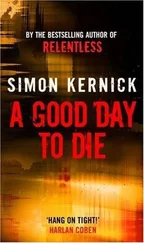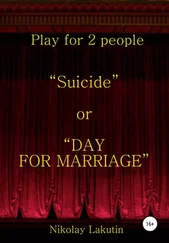The architectural drawings can be salvaged and revised. They can build with hay bales now; it’s cheaper. They can do it themselves. After the adobe walls and kiva beams, they’ll tile the floors. Later they’ll plant chilies. Then half an acre of lilies, Calla Lilies. They can have a roadside stand in April at Easter. They’ll be known throughout the northern plateaus as the women of the lilies. Some will call them the women who sell communion.
They’ll be known only by rumor. It will be said that the solitary raven of the mesa received a miracle. There was a brutal severing and a long season of mourning. Then, inexplicably, since this is the nature of all things, the unexpected occurred. Hierarchies are irrelevant because they do not examine central and recurring events. There’s the unknowable trajectory of inspirations that prove to be barricaded cul-de-sacs. Or a king has an aneurism, issues a final edict, and families collapse, and villages vanish.
As there is lightning and cataclysm, droughts and wildfires, so too exists the revelatory accident. Are we not reconfigured as we cross rooms, strike matches, and catch moonlight on our skin?
On a mesa above Espanola, where the Rio Grande is a muddy creek you can’t even see from the highway, it is said that one day a lost daughter bearing the name of a sacred stone was somehow returned.
For precisely twenty-five years, Barbara Stein has required her advanced placement English class at Allegheny Hills High School to produce a three-page creative essay describing their summer vacation.
Introduce yourselves to me , Mrs. Stein has asked a quarter century of 10th graders. Begin with the last three months .
In return, she’s presented with listless landscapes like postcards selected at random in convenience stores or found accidentally in a stranger’s drawer. Cities meet their harbors, waves unavoidably fill the centers with anonymous paint-can blues, but it’s all secondhand and detached from the speaker. They’re merely views without fragrance or the possibility of vertigo.
Her students omit the ambiguously provocative areas of their Julys and Augusts. They replace them with predictable travelogues. She is presented with formulaic montages of interchangeable beaches meeting cliffs with the remnants of fortresses and rubble of cathedrals and lighthouses.
The images are the certified version of location and event, but they’re a censored translation, generic, erased of danger and revelation.
This is so impersonal; it might have been transmitted from another planet. In red ink she writes, Nice image, but what are the sounds of summer? The specific smells of your July?
Mrs. Stein believes catastrophe has a distinct texture and climate. Summer disasters are deceptively intense and enacted under stark white light. It’s garish and has nothing to do with illumination. It’s the flash of a camera freezing your face with a comprehension of circumstances you don’t suspect you know. That’s why you reject the photograph. It isn’t because the angle is unflattering, but rather the image contains gestures and dialogue occurring just behind your shoulder. It’s in the hallway or on the pier, a subtle text you pretend doesn’t exist.
Tell me about the quality of light, Barbara Stein instructs, and you’ll find out who you are .
Some students begin to listen. They consider the periphery of their lakeside villages — the implications and the words they don’t actually hear but subconsciously intuit. On certain summer nights the prolongment of divorce is unmistakable — it’s an edgy scrape across an unwashed plate, an unexpected slap on a face, a slammed car door, a phone call in a voice too rapid and soft in a back room with the lamps shut off. The correlation between betrayal and darkness is obvious. One must listen beyond thunder and crickets, past wind blowing the motel banner advertising free dinners for children in six colors.
If you’ve trained yourself, you can hear disease and derangement growing. Cancer is sudden and yellow and smells like rotting tropical fruit and algae in neglected aquariums. Sickness favors surfaces like plaster hallways, mesh screen doors, and plastic kitchen counters in rented bungalows. Sometimes it appears after lightning storms as if electrically incited. Divorce has its unique architecture and undertow. You must search for this while you’re fishing. It’s not in the bucket of bait or on the nylon lines. Instead it’s in the wakes boats carve on water like a legible script.
This is a good setting , Mrs. Stein inscribes on the margin of a student paper. But I think there is more you want to say. Don’t be afraid. The page is your best friend.
Mrs. Stein is intimate with the core of summer. It’s the khaki of tents and sleeping bags and army uniforms. It’s the khaki of camouflage.
Her students entertain the notion that she has unspecified powers, perhaps of a telepathic nature. Yet Mrs. Stein is known as a teacher you can trust. You can tell her about your mother’s new boyfriend and how you’re having trouble sleeping. Mrs. Stein doesn’t demand specific information or what was actually suggested in the barn or pick-up, and the events that followed. She understands what you’re not saying. You can reveal yourself to her in a way you can’t to the guidance counselor who will report your confidences to the principal.
Barbara Stein is an expert keeper of secrets. It’s curious no one suspects her of also possessing them. That’s what keeping a low profile, rarely confiding in another human being, and buying your clothing from the LL Bean catalogue does. It renders the most salient aspects of your personality invisible. In an age of labels and categories, one can effortlessly disappear.
Barbara Stein is, in fact, festooned with clandestine hieroglyphics. If her subterfuges were made dimensional, shaped perhaps into ornaments, she could be Allegheny Hill’s annual Christmas tree. She would sparkle with the radiance of her concealment, her omissions, and what’s growing in her periphery and margins. There’s the matter of where her daughter is, and how she hasn’t spent the last twenty years of winter nights alone. If Barbara Stein told the truth, she’d blind you.
Her students respect Mrs. Stein’s courage. When the schoolboard banned The Catcher in the Rye and The Diary of Anne Frank , she continued teaching these books. She drove all the way to Pittsburgh to buy paperback copies. She purchased them with her own money. When the board threatened to fire her, she replied, “Fire is a weapon against truth. After all, they fired Joan of Arc.”
Students in graduate school return to pay their respects. Mrs. Stein doesn’t encourage this. She doesn’t save their postcards with literary allusions or their trinkets from England and Greece. She doesn’t read their publications and has only an abstract and minimal interest in their achievements in the field of the written word.
Mrs. Stein doesn’t think there is much field left for the written word. It was once a frontier, a primitive meadowland like the acres of shoulder high Mustard, Purple Thistle, and Golden Rod beyond her apple orchard and gardening plots. It’s become a squalid cul-de-sac, a footpath littered with garbage you can’t find on a map. The quality of books has changed in her lifetime. They’re constructed from a different sort of paper and poorly bound, as if intended to be discarded. They’re like cereal boxes rather than sacred artifacts. She’s seen exhibitions where text was used as a graphic element — letters were selected for their shape, rows of words were pasted into columns forming geometric patterns. These representations didn’t offend her.
Читать дальше






![Джон Харгрейв - Mind Hacking [How to Change Your Mind for Good in 21 Days]](/books/404192/dzhon-hargrejv-mind-hacking-how-to-change-your-min-thumb.webp)





